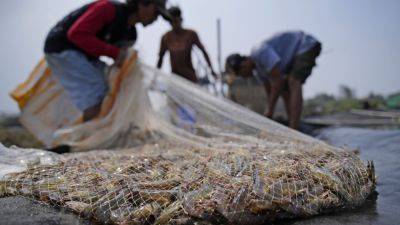Rice battle heats up as India, Pakistan lift export curbs
Exporters fear a pricing war as the South Asian rivals lift restrictions on global sales of rice.
Islamabad, Pakistan – The global prices for different varieties of rice dropped on Monday after India and Pakistan made tit-for-tat moves to eliminate price caps and resume rice exports.
On Saturday, the Indian government lifted a ban on the export of non-Basmati white rice more than a year after it blocked overseas sales, with a larger crop yield in 2024 bolstering state warehouse reserves for domestic needs.
This decision followed Pakistan’s announcement a day earlier to withdraw the minimum export price (MEP) for all rice varieties, a measure that had been in place since 2023 and set at $1,300 per metric tonne for Basmati rice, and $550 for non-Basmati rice.
Pakistan’s decision was influenced by India’s earlier removal of the MEP of $950 per metric tonne for Basmati rice in September.
India and Pakistan are the only countries that produce Basmati rice, known as “scented pearl”, for its unique flavour and aroma.
In a notification issued on September 28, Jam Kamal Khan, Pakistan’s commerce minister, said the government acted on a request from the Rice Exporters Association of Pakistan (REAP) to eliminate the MEP.
Khan said the price floor was introduced last year in response to rising global rice prices and India’s export ban on non-Basmati rice, which was followed by New Delhi imposing some restrictions on the export of Basmati rice in August 2023.
With those bans, Pakistan in effect became the only exporter of Basmati rice – allowing it to charge top dollar through the MEP.
“However, with the recent decline in international rice prices and India lifting its export ban, the MEP has become an obstacle for Pakistani rice







